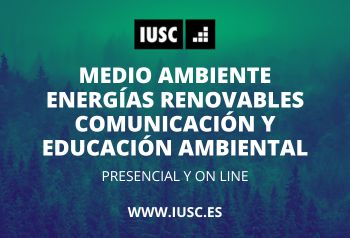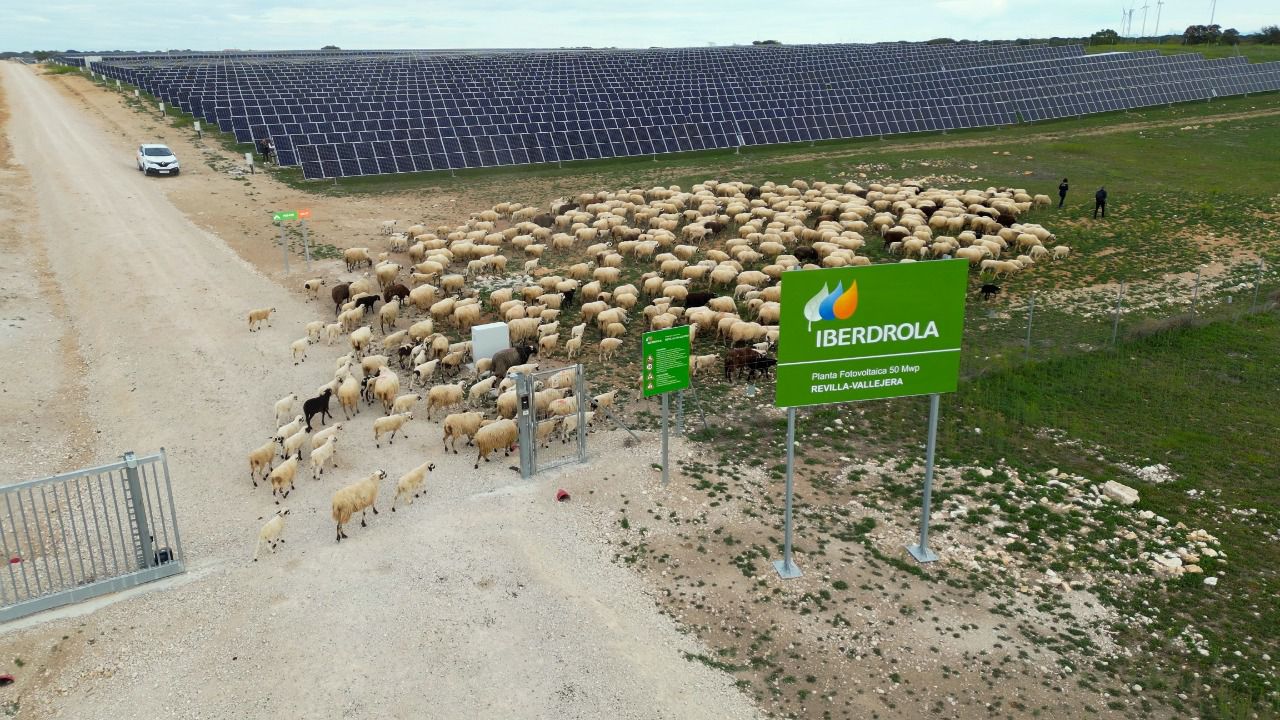The photovoltaic installation of Iberdrola Revilla Vallejera, located in Castilla y León, has been awarded as one of the 10+10 business examples #PorElClima. It happened during the seventh edition of these awards, organized by Ecodes.
The Castilian-Leonese photovoltaic installation of Iberdrola Revilla Vallejerain the city of Burgos of the same name, was recognized today at the Bertelsmann Space in Madrid as one of the 10+10 #PorElClima Business Examples.
The seventh edition of these awards, promoted by Ecocodes, recognizes the commitment and climate ambition of 10 large companies and 10 SMEsto make visible its initiatives to tackle the climate crisis and promote actions to promote decarbonization.
Iberdrola, in collaboration with the mushroom and fungus producing company Fungi Natur, has in this factory in Burgos the first project in Spain to grow mushrooms in photovoltaic installations, allowing take advantage of the field and the shade of the panels to encourage local work and agricultural development, while saving water and improving crop quality.
Furthermore, the mushroom harvests from this sustainable Iberdrola project They have a charitable nature, the mayor of the city distributes them in the city. The first harvest, which was nourished by oyster and siitake mushrooms, poplar and reishi, a variety with medicinal properties that strengthen the immune system and is believed to be anti-cancer, was tasted by the elders of the Los Balbases residence.


The initiatives recognized this morning make this possible a transformation of the economy and societywhere growth and employment are generated in various sectors and always with a sustainable long-term vision.
The recognitions were presented by Claudia Binotti, project manager of the Club of Excellence in Sustainability; Carmen Navarro, manager of the Spanish Green Growth Group; Ana Herrero, Director of Sustainable Transformation at Forética; and Rosa Díez, responsible for the environment of the UN Global Compact Spain.
This plant in Burgos produces enough clean energy to supply a population of 26,000 homes per year avoids the emission of 12,300 tons of CO2 per year. Furthermore, it has led to the generation of more than a hundred green jobs, including the construction and operation phases.
The new challenge from Ecodes aims to highlight actions that should go beyond the emission reduction targets planned for 2030 and should mainly focus on impact measurement, calculated emission reduction, public reporting and/or social mobilization.
Iberdrola promotes that the development of renewable energies has taken place a net positive impact on biodiversity. The company made this commitment years ago and continues to work within the framework of its Biodiversity Plan and the Convive program to enable renewable energy sources to create a symbiosis with nature, society and the economy.
Climate change is progressing at an increasingly rapid pace and renewable energy sources are being positioned as an essential lever in the rapid and effective fight against climate change. reduce emissions and minimize the impacts of climate change on people and planet.
To contribute to global goals, the energy transition must be implemented in a manner compatible with global goals necessity to preserve and restore nature. The good news is that this is made possible by an increasing number of tools and solutions available to ensure that renewable energy deployments are properly targeted and managed, contributing to improved biodiversity and socio-economic development benefits .
Iberdrola: energy, people and biodiversity
Iberdrola is committed to a model sustainable energy in harmony with nature and people. This model is based on two main objectives: achieving net zero emissions in all areas before 2040 and having a net positive impact on biodiversity by 2030, according to the Biodiversity Plan.
Iberdrola recently published its Biodiversity Report, which includes the strategy and actions implemented over the past two years, more than 1,800 in total.
The company has also launched the Convive program, which includes a host of measures to ensure that renewable installations are fully compatible with the biodiversity, agriculture, livestock farming or even beekeeping.
For example, some photovoltaic installations have been installed true havens of biodiversityallowing even endangered species to find a suitable place to live (e.g. free of pesticides and disturbances).
In addition, the Revilla Vallejera factory in Burgos, which was recognized this morning, grazes 600 sheep daily on the premises of this facility, a clear example integration between renewable energy sources, nature and the local economy“sun grazing” benefits livestock farmers, who get new space for their activities.
It is positive for the plant, as it ensures the ecological maintenance of the land and reduces the risk of fire and benefits the animals who, in addition to access to food, also find protection from the sun, rain and wind in the solar panels.
During the first edition of the Convive Iberdrola Awards, the municipal council of Revilla Vallejera was awarded, a municipality in the province of Burgos that has taken its place on the map of renewable energy sources since 2016. It is a good example that under small towns and renewable energy there may be a synergistic relationship and mutual benefit.

